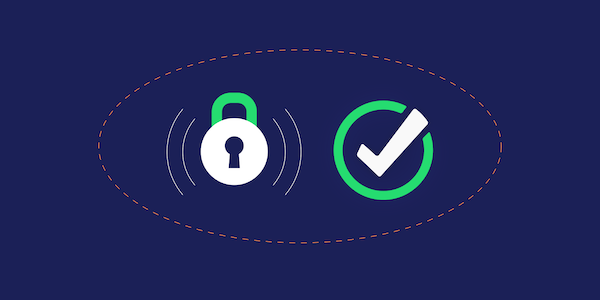
Productivity is the key to success. Whether you run a business, work for one, or simply work freelance, you will find that productivity plays a crucial role in the success of your work. When we think of productivity, however, we never seem to consider the importance of digital- or cybersecurity.
There are plenty of ways that cybersecurity can boost productivity, both on an individual basis and across businesses and organizations. When practicing cybersecurity to improve your productivity, you are protecting both your work and yourself—it’s a win-win situation!
Here are nine tips you can exercise in order to strengthen your cybersecurity and boost your productivity.
1. Reducing Security Breaches & Attacks
This is almost a no-brainer. The fewer security breaches you have, the less time you have to spend correcting them in the long run.
Although implementing a security process upfront can take time, it will actually allow you to save time (and probably a headache!) in the long run by ensuring you are protected before a breach or attack. You can save yourself some time later that would otherwise be spent on not only implementing a security strategy, but also cleaning up whatever systems or pieces were broken or damaged in the attack.
In addition, the possible productivity savings extend even further than simply fixing and implementing solutions: oftentimes when a hack or security breach occurs and the public becomes aware, a business will lose customers. Losing customers means the business will have to spend extra time making up that income or client base. You can help avoid this by putting in the work initially to ensure you have a good security system.
2. Automating Security Processes
Most online businesses and organizations now require a certain level of security that must be maintained on a daily basis. However, by automating these activities, you can recover a lot of time, and when talking about productivity, time savings tend to add up quickly.
One example of automating security in a business is by installing a keypad or RFID to access the workplace building or different departments within. If you or another worker needs to come in during off-hours, you can gain secure access to the facility quickly and easily without needing another person to unlock it for you. This can oftentimes be critical during business emergencies. Not only does this save time, but it also ensures the security of those entering the facility.
3. Security To Reduce Stress
It’s a fact that people are more productive when they are less stressed. Therefore, another huge advantage to cybersecurity is that it can help reduce stress in both you and your workers.
Implementing strong security standards such as virus scanning, automated backup, or automatic computer locking can reduce the level of stress and time needed for employees to spend on these tasks. This is a one-two punch when it comes to productivity: you can provide your employees with peace of mind and save them time on tasks that would otherwise need to be performed weekly or monthly.
4. Put Security Policies On Repeat
A good cybersecurity policy requires ongoing effort. Part of that ongoing effort is simply remembering what tasks are required to stay secure. A great solution is to use a calendar or to-do tool to set reminders on repeat.
Need to change your passwords every three months? Set a recurring task in Nozbe or a reminder on Google Calendar; this will not only help you stay secure, which feeds into the items we mentioned previously, but it also puts your security project management into a set-it-and-forget-it framework, thus removing the need to even think about what needs to be done. Any time you can avoid repeating yourself is a huge boost to productivity that is sure to add up over time.
5. Monitor Internet Access
It’s no secret that employees that waste time on social media and news sites hurt productivity big time. Adding restrictions to your business network that block access to certain sites can help you recover huge chunks of employee time and will urge employees to redirect that time back to their job function.
This can also benefit managers, as they will gain time that will no longer have to be spent on tending to their employees, making sure they aren’t browsing Facebook instead of working.
Furthermore, these benefits don’t extend to just tech business. A recent study mentioned in FastCompany outlined that restaurants that implemented internet monitoring improved their monthly revenue by nearly $3,000. When you consider that restaurants often operate on a razor-thin margin, imagine the benefits that other types of business can accrue.
6. Use A VPN
When it comes to business, many different organizations are becoming largely decentralized and roles are more often offered remotely. A VPN, or Virtual Private Network, can be a great way to allow employees to work from home. Basically, a VPN extends your business network outside of the office.
This allows for greater flexibility from your employees to work when they are home or when there is a business emergency just as if they are in the office.
A VPN can also allow external stakeholders such as clients or investors to access internet files and documents in a secure manner. This strategy can also help a business avoid legal and privacy issues that often arise when transferring files through email.
7. Don’t Do It Yourself
Business owners have a habit of trying to do everything themselves. This can be a huge productivity downfall when it comes to IT and cybersecurity. That’s not to say that a CEO or owner cannot implement sound security policies. However, it’s often the case that they spend way too much time implementing these policies instead of simply having a professional take over the role.
The same goes for on-going security maintenance. This can be a hefty role; maintenance can be time-consuming, not only on a day-to-day level, but also when you consider the updates that come with frequent industry changes. Just keeping up with the changes in security standards can be a full-time job, so a huge productivity tactic can be hiring a specialist to implement the appropriate security protocols and practices for your business.
8. Use Automated Backups
Using automated backups can be one of the biggest security and productivity tricks a person or business can implement. Imagine the time that would be lost if important files were lost due to employee error, malicious hackers, or hardware failure.
Not only could important files be lost, but you also have to consider the amount of time that would be needed to replace them. With an automated backup solution, not only are your files safe, but you also avoid having files corrupted if malicious users ever gain access to your network.
9. User Virtualization
Similar to our point about VPNs, virtualization also offers the ability to connect to a desktop environment remotely.
However, virtualization has a huge advantage over a VPN: the actual machine you are connected to is isolated from the other machines and can be wiped or reprovisioned at a moment’s notice. This means that if there is a hack or a breach in your security, the rest of your team or company can continue operations as normal.
Conclusion
It may not be immediately apparent that a solid security program can increase productivity. However, when you consider the potential time and money lost if a breach does occur, it then becomes recognizable that implementing sound security protocols can boost your business efficiency in the long run.




